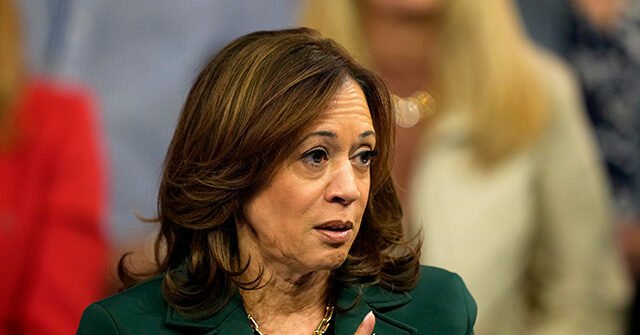Recently, a prominent aide to Vice President Kamala Harris has indicated that the Vice President is reconsidering her past position on fracking, a shift from her earlier promise in 2019 to prohibit the practice. Critics have pointed to this inconsistency as evidence of Harris being an “empty political shell,” suggesting she may alter her stance based on what may be politically expedient. An Economist/YouGov poll reflects public skepticism about her authenticity, revealing that 48 percent of Americans think she is more inclined to express what she believes people want to hear rather than her actual beliefs.
Camila Thorndike, Harris’s climate engagement director, clarified that Harris does not support new land leases for fracking, despite the Vice President’s prior voting support for the Inflation Reduction Act (IRA), which included provisions that expanded fracking leases. Thorndike emphasized that Harris’s current position is aligned with the administration’s stance, indicating that Harris is not promoting any expansion of fracking leases. This contrast makes it apparent that the Vice President’s prior endorsement of the IRA, where she cast a tie-breaking vote, complicates her current messages on fracking.
During her 2019 presidential campaign, Harris was clear about her intent to ban fracking, a commitment she seems to have shifted away from in a recent CNN interview. In that interview, she rejected the label of being against fracking altogether, asserting she never advocated for a ban. Her comments have muddied the waters regarding her true stance on the issue, leaving many in Pennsylvania uncertain about what her administration would do concerning fracking, should she be elected president.
The prospect of banning fracking in Pennsylvania raises significant economic concerns, as the practice is deeply embedded within the state’s economy. Up to 2,000 landowners receive royalties from leasing their land for natural gas extraction, and these revenues play a crucial role in supporting local government services, including education, law enforcement, and conservation projects. According to reports, fracking has generated approximately $3.2 billion in tax revenue at both the state and local levels, with total royalty payments exceeding $6 billion.
The broader economic implications also include employment, with approximately 121,000 jobs in Pennsylvania linked to the fracking industry, as highlighted in a 2022 study by FTI Consulting. Pennsylvania figures prominently in the Democratic Party’s strategy to uphold its coalition in the electoral battlegrounds against former President Donald Trump, who remains a formidable opponent. Polls currently suggest a narrow lead for Harris over Trump, although the figures indicate a close race influenced by her fluctuating policies.
In summary, the evolving narrative around Vice President Kamala Harris’s position on fracking demonstrates the pressure political figures experience in balancing their principles with the pragmatic demands of their electoral bases. Her comments hint at a nuanced stance that reflects the complexities of energy policy in relation to economic realities, particularly in pivotal states like Pennsylvania that play a critical role in determining national elections. As the election approaches, voters will likely scrutinize Harris’s approach to climate issues and fracking, weighing her past commitments against her current rhetoric to gauge authenticity and reliability.

